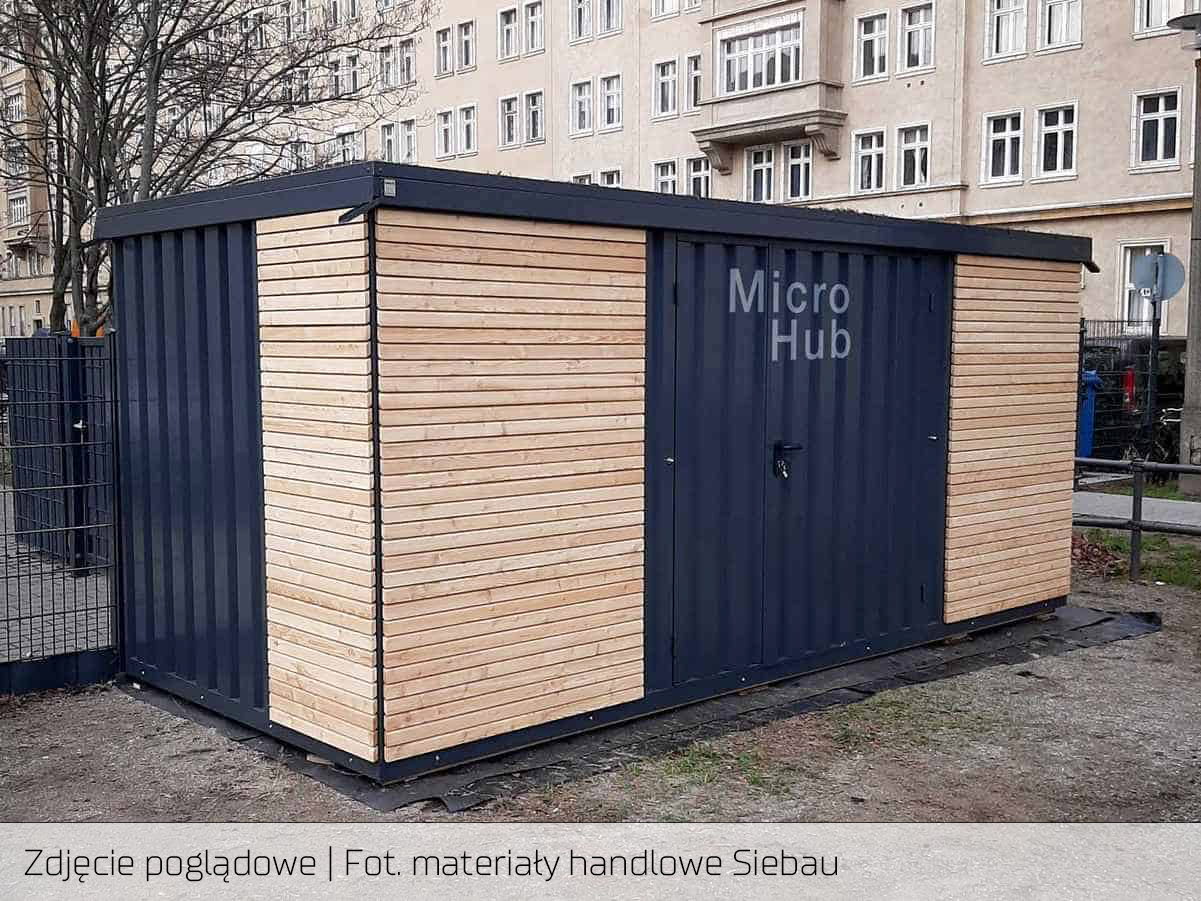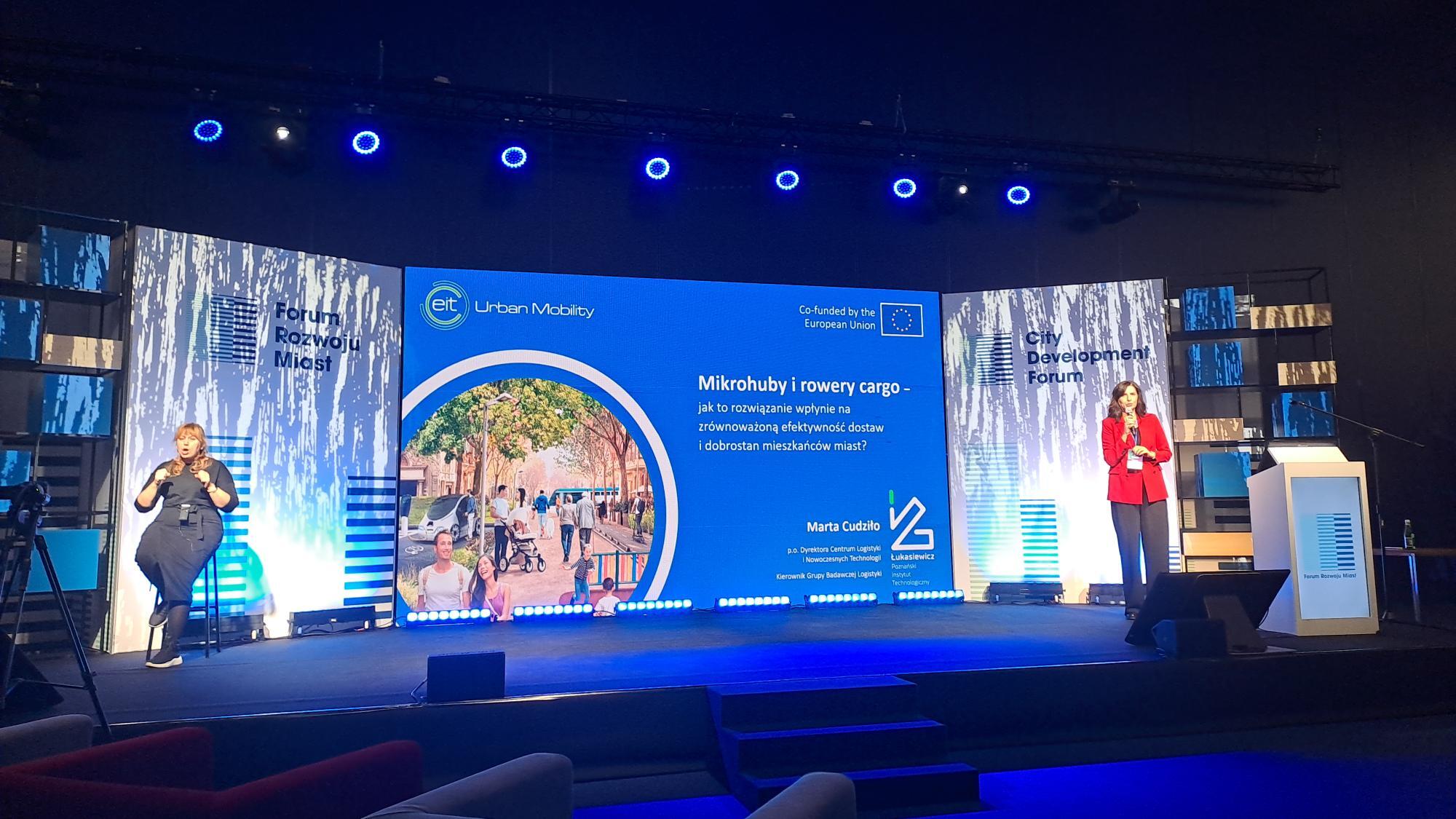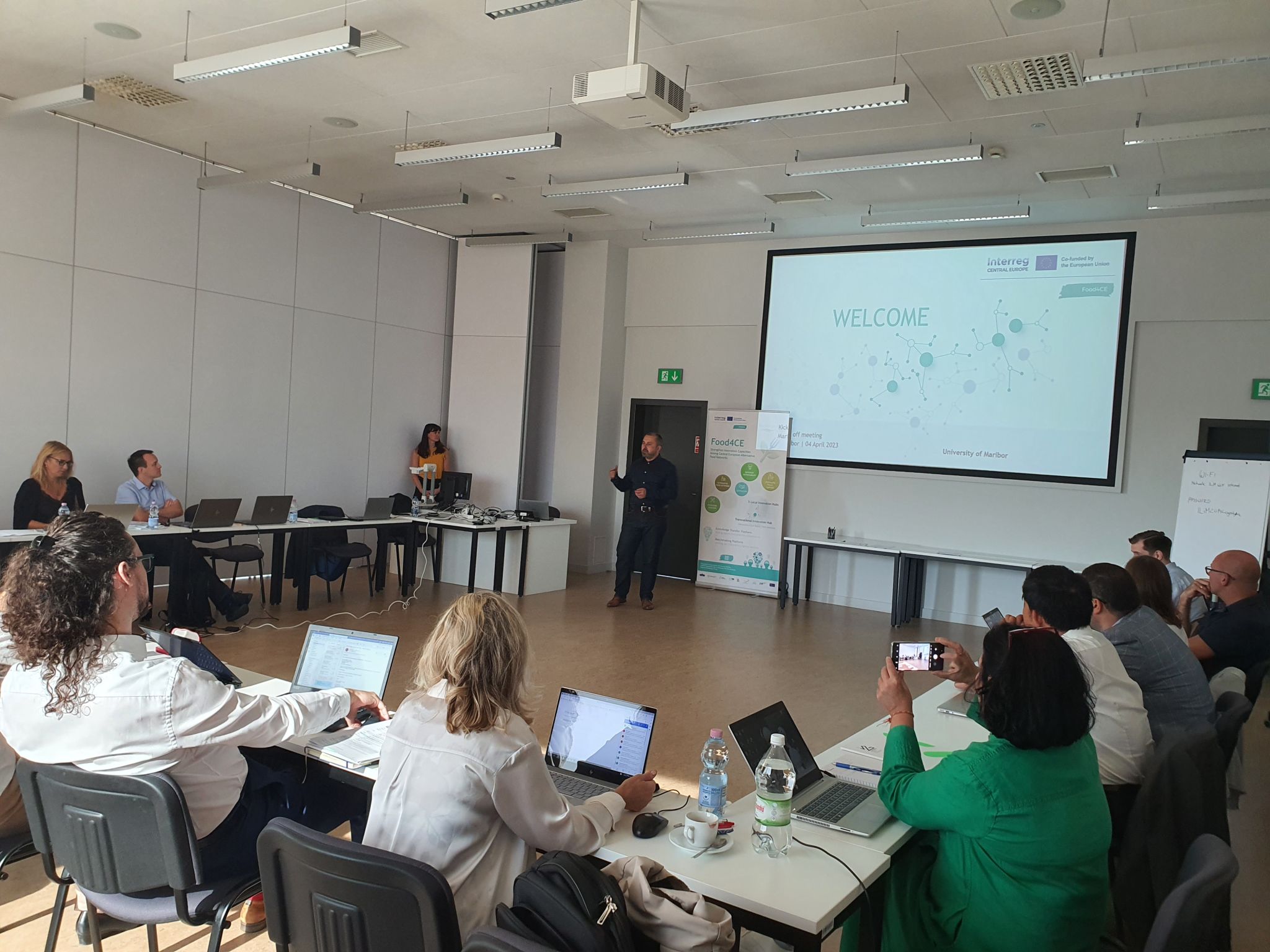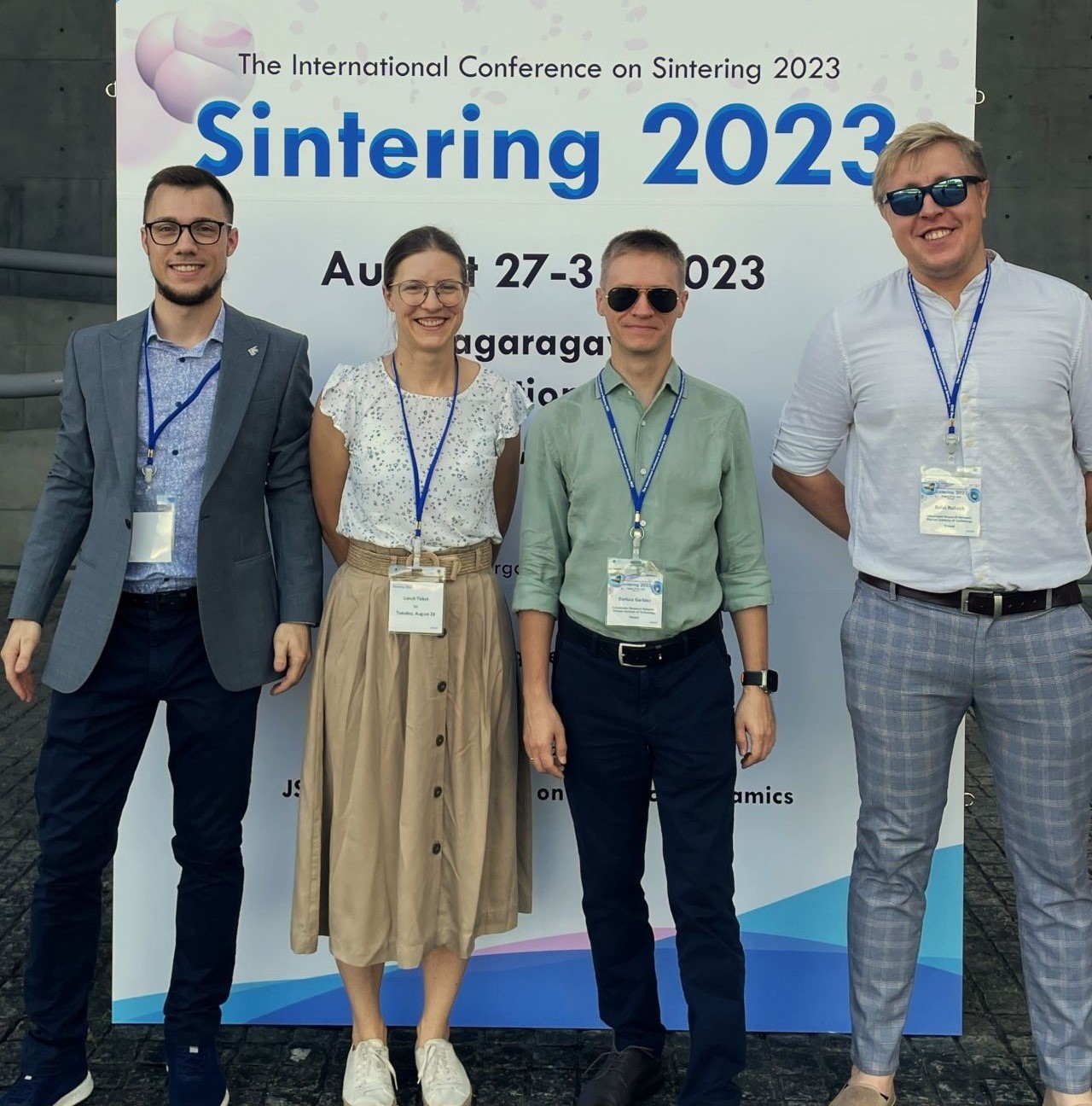Łukasiewicz – PIT and GLS are working on Poland’s first urban microhub for transshipment

Groundbreaking project to revolutionise last-mile transport in congested metropolises. Poznań is the first city in Poland to introduce a transhipment microhub. It is an idea implemented by Łukasiewicz – Poznań Institute of Technology, Poznan City Hall and supported by GLS Poland, which will handle parcels from the microhub as part of a pilot project.
The idea of reloading microhubs is to create such a transhipment site in the city centre, from which parcels would be delivered to recipients on courier bicycles. The first microhub in Poland will cover the centre of Poznań, i.e. the area with the highest concentration of buildings and car traffic.
– The aim of this project is very simple. We want to create an ecological and efficient solution, which will decrease the number of delivery cars in the centre of Poznań and increase the number of cargo bicycles, without affecting the quality of parcel delivery, says Marta Cudziło from Łukasiewicz – Poznań Institute of Technology. As she adds, the creation of the microhub is possible thanks to the EU GRETA project, an important element of which is the pilot implementation of innovative solutions supporting the path of transformation of European cities towards the use of efficient and ecological last mile transport. In addition to Poznań, cities such as Reggio Emilia, Maribor, Verona and Budapest are participating in the programme.
How does a transhipment microhub work?
A microhub is a small parcel handling point located in the city centre where couriers drive up in vans and unload parcels. The parcels are then placed on courier bicycles and distributed to recipients in the city centre. By definition, a microhub is small in size, comparable to a garage or container. In the long term, it is also possible to develop its functionality and create a PUDO (Pick-Up, Drop-Off) point in it as well, from which parcels can be sent or collected in person.
– Any action that supports zero-emission in transport is close to our heart. Therefore, participating in this project is a natural consequence of our ambition to reduce CO2 emissions and become completely zero-carbon by 2045. Pilots like the one in Poznań are gaining importance especially now that the European Union is taking legislative steps to achieve a 55 per cent reduction in CO2 by 2030 compared to 1990 levels, says Andrzej Wasielewski, director of domestic operations and infrastructure from GLS. The company already has experience of transporting parcels by cargo bike within the Greater Poland capital. Over the past year, three courier bicycles bearing the GLS logo have been riding around Jeżyce and the Old Town area, transporting parcels along the city’s most congested streets.
– Cycling transport in Poznań is favoured by a well-developed network of cycle paths, as well as the mentality of the inhabitants, who want to live ecologically and not generate noise or exhaust fumes, emphasises Andrzej Wasielewski.
As part of the pilot, GLS will be supporting Łukasiewicz – Poznań Institute of Technology at the concept stage, as well as providing logistical support for the entire project. It will be GLS bicycle couriers who will be on cargo bicycles delivering parcels collected from the microhub around the centre of Poznań.
– We are now going to define the requirements for the hub and the bikes together with the city and GLS, select an appropriate location, further implement the system in practice and finally analyse all indicators to assess the effectiveness of this form of delivery, concludes Marta Cudziło.
The piloting of the first transhipment microhub in Poland will end in March 2026.




